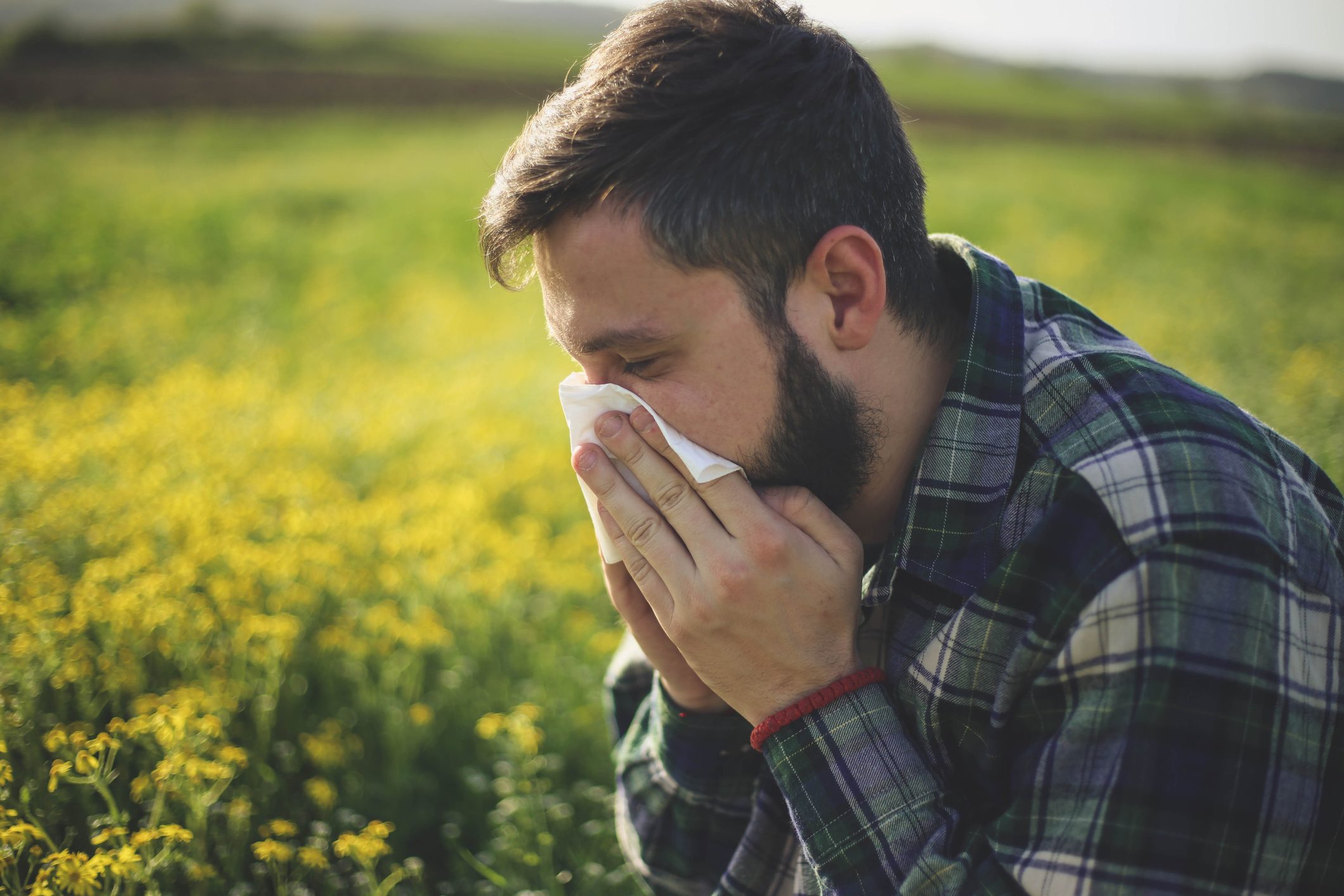Not sure when those pesky seasonal allergies are going to hit? An allergist explains when you can expect allergy season to hit.

When Exactly Is Allergy Season?

Highlights
- Tree, grass, and weed pollen are the most common triggers for seasonal allergies.
- Most people with seasonal allergies have symptoms between March and September.
- However, when you experience allergy season depends on the particular pollens you’re allergic to, as well as your location.
Who doesn’t love the sight of light green buds forming on trees? What about the healthy grass finally filling in those patches in the park that were tromped down and swampy all winter? Springtime is always welcome when it arrives…but for a growing segment of Americans, allergies are a miserable side effect.
Seasonal allergies can occur because of the types of plants that are blooming and fertilizing in a given area during a particular time of year. A person experiencing allergies may find themselves with a sniffling nose and watery, itchy eyes. But when is allergy season? And how should you prepare for those seasonal allergies hit?
The Healthy by Reader’s Digest asked Dr. Andrea Burke, MD, a New York City-based board-certified allergist and immunologist about when seasonal allergy season will strike, and how it may affect you.
What months are seasonal allergies worse?
Naturally, the most common timeframe for seasonal allergies is during the “pollen” months, meaning certain plants are pollinating to allow for fertilization. While there isn’t an exact month to pinpoint when seasonal allergies are the worst, the most common months people will experience these types of allergies are those between March and September.
This, of course, is all dependent on which pollens you’re allergic to. According to Burke: “When in the year a person experiences sudden worsening of their allergies [will] depend on which pollen they are allergic to.”
So how exactly do you know the season when your allergies will hit? First, you’ll need to understand which type of pollen causes a reaction, and this requires an allergy test.
What are the most common allergens?
Pollen season looks different in different parts of the country. It largely depends on the plants that are native to your region. In the northern United States, for example, the three most common pollens are:
- tree pollen
- grass pollen
- weed pollen
When is allergy season?
According to Dr. Burke:
- People allergic to tree pollen will experience symptoms from March through April.
- People allergic to grass pollen experience symptoms from late May through July.
- People allergic to ragweed pollen experience symptoms in August and September.
“In other regions, the pollen seasons can be a little earlier, later, longer, or shorter, depending on when trees, grasses, and weeds commonly release pollen,” says Burke.

Pay attention to time of day
The time of day can also make a difference. According to the American College of Allergy, Asthma, & Immunology, people with tree or grass pollen allergies will likely experience the highest levels (that is, the strongest reactions) in the evenings, while ragweed pollen tends to be highest in the morning.
Keep an eye on allergy maps
Allergy maps such as those at Pollen.com can be great resources for viewing how severe allergens are in your region of the country. So if you find yourself with uncomfortable allergy symptoms during particular pollen seasons, having this map on hand could be key for understanding which days it may be best to stay indoors or to take over-the-counter allergy medication. And, of course, you can always speak to an allergist about a proper treatment plan to handle those pesky symptoms.
What if you have allergy symptoms year-round?
On the other hand, if you deal with allergy symptoms throughout the year—no matter the season—you might be dealing with a different type of allergen that isn’t confined to a particular season. “Other allergens such as dust mite and animal dander are perennial allergens, so they don’t have a specific ‘season,'” says Burke. “People who have these allergies will likely have symptoms year-round.”
About the expert
|
For daily wellness updates, subscribe to The Healthy by Reader’s Digest newsletter and follow The Healthy on Facebook and Instagram. Keep reading:




















